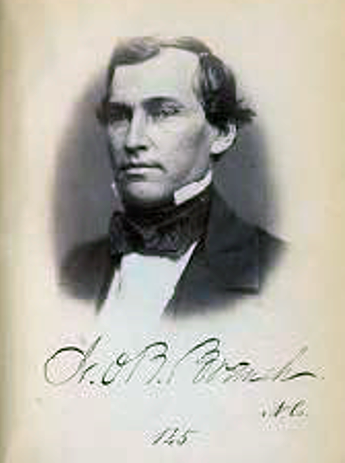In “What the Civil War Cost Princeton” (July/August issue), the author uses a sardonic reference extracted from an appendix to a dated volume to dishonor Confederate General Lawrence O’Bryan Branch, Class of 1838, stating that he “was lacking in ‘any native dignity or honesty.’”
 Lawrence O’Bryan Branch was my great-great-grandfather.
Lawrence O’Bryan Branch was my great-great-grandfather.
Despite the unsupported aspersions of the article, Branch accomplished much in his 42 years: He was tutored by Salmon P. Chase; was named salutatorian of his Princeton class; became a successful businessman, railroad president, and moderate voice in three terms in Congress during the run-up to the war; and declined President Buchanan’s invitation to serve as his secretary of the treasury — all before his creditable service as a brigadier general during many pitched battles before he was struck down by a Union sharpshooter at Antietam.
Instead of the obscure quote that the author uses to impugn Branch’s integrity, a fairer assessment is the informed tribute from his commanding officer, Division General A.P Hill, that Branch “was my senior brigadier and one to whom I could have entrusted the command of the division with all confidence. No country has a better son or nobler champion, no principle a bolder defender than the noble and gallant soldier, General Lawrence O’Bryan Branch.”
For all of the wrenching legacy of the Civil War, I take solace in the certain knowledge that my great-great-grandfather in fact lived with honor and dignity within the context of the society — so crushingly discredited by the war — in which he lived.
